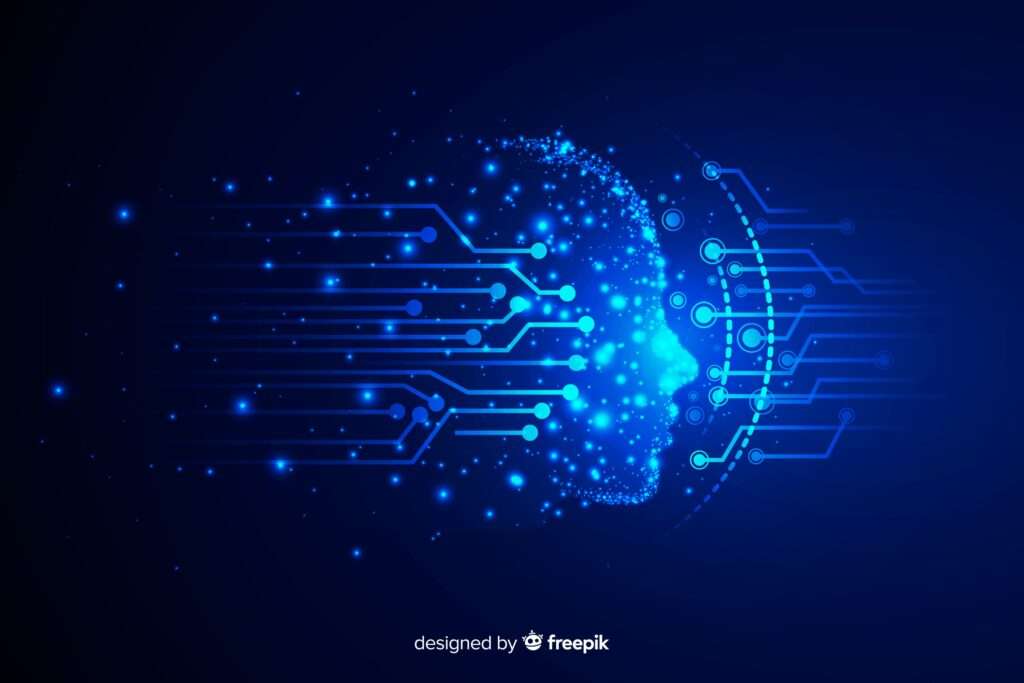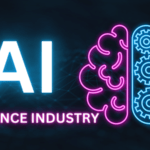What is artificial intelligence?
Artificial Intelligence (AI) is a field of computer science that focuses on creating computer systems and software capable of performing tasks that typically require human intelligence. These tasks include learning from data, solving complex problems, recognizing patterns, understanding natural language, and more. AI has a wide range of applications and is transforming various industries, from healthcare and finance to transportation and entertainment. Artificial Intelligence examples continues to advance, offering exciting possibilities for the future.
What is an example of an intelligent automation solution that makes use of artificial intelligence?
An example of an intelligent automation solution that makes use of artificial intelligence (AI) is a chatbot for customer service. Chatbots are computer programs that use natural language processing (NLP) and machine learning algorithms to simulate human-like conversations with users. Here’s how it works:
And I learn more here than anywhere else, from artificial intelligence to new discoveries in superconductivity!
— Elon Musk (@elonmusk) August 3, 2023
Artificial intelligence in NLP and Machine Learning
The chatbot is trained using artificial intelligence and machine learning techniques on vast amounts of text data to understand and interpret human language. This allows it to recognize and process user queries and responses effectively.
Artificial intelligence in User Interaction
When a user interacts with the chatbot, whether through a website, mobile app, or messaging platform, the chatbot uses its AI algorithms to analyze the user’s input and determine the user’s intent and context.
AI in Response Generation
Based on its understanding of the user’s input, the chatbot formulates a relevant response. It can provide answers to frequently asked questions, offer troubleshooting assistance, or even engage in more complex conversations.
Artificial intelligence in Continuous Learning
The AI behind the chatbot is designed to continuously learn from user interactions. It can adapt and improve its responses over time as it gathers more data and user feedback.

Artificial intelligence in Automation
Chatbots can automate a wide range of tasks, including answering customer inquiries, providing product recommendations, processing orders, and more. This automation can significantly reduce the need for human intervention in routine customer service interactions.
Artificial intelligence in Scalability
Chatbots can handle multiple conversations simultaneously, making them highly scalable. They can provide support to a large number of users 24/7 without the need for additional human staff.
Artificial intelligence in Integration
Intelligent chatbots can integrate with other systems and databases to access and retrieve information. For example, they can connect to a company’s knowledge base or CRM system to provide personalized and up-to-date responses.
Artificial intelligence in Personalization
AI-driven chatbots can personalize interactions based on user data, such as past interactions, purchase history, or user preferences. This enhances the user experience and makes the interactions more relevant.
Overall, chatbots are an excellent example of intelligent automation solutions that leverage AI to enhance customer service, streamline business operations, and improve efficiency. They are increasingly being used across various industries, including e-commerce, banking, healthcare, and more, to provide better and more efficient customer support and engagement.
Artificial Intelligence and Data Science
Artificial Intelligence (AI) is a technology that enables computers and machines to perform tasks that typically require human intelligence. In data science, AI is used to automate data analysis, make predictions, and uncover patterns in large datasets, helping businesses and organizations make better decisions based on data.
Future Of Artificial intelligence (AI)
The future of artificial intelligence engineering holds significant promise. AI is poised to transform industries such as healthcare, transportation, and finance by automating tasks, enhancing decision-making, and improving efficiency. Machine learning and deep learning techniques will continue to advance, enabling AI systems to learn and adapt from data at unprecedented levels. Ethical considerations and responsible AI development will gain importance to address potential biases and privacy concerns. Collaboration between humans and AI will likely increase, creating new job opportunities. While exciting possibilities exist, challenges like ethical dilemmas and regulatory frameworks must be addressed for a responsible and equitable AI future. In this article i hope you get answers of “what is an example of an intelligent automation solution that makes use of artificial intelligence?”
keep visiting thebharatwasi.com
FAQs related to artificial intelligence in automation
What is Artificial Intelligence (AI) in Automation?
Artificial Intelligence in automation refers to the use of advanced algorithms and machine learning techniques to enable machines and systems to perform tasks without human intervention. It involves programming machines to learn from data, make decisions, and adapt to changing conditions, ultimately improving efficiency and productivity.
How is AI Transforming Automation Industries?
AI is revolutionizing automation industries by enhancing decision-making processes, automating repetitive tasks, and optimizing resource allocation. It enables predictive maintenance, real-time monitoring, and smart data analysis, leading to reduced operational costs and improved quality and safety.
What Are Some Practical Applications of AI in Automation?
AI is applied in various industries, including manufacturing, healthcare, finance, and transportation. Examples of practical applications include autonomous robots in manufacturing, AI-driven diagnostics in healthcare, predictive maintenance in energy, and self-driving vehicles in transportation.
Is AI in Automation Cost-Effective for Businesses?
Yes, AI in automation can be highly cost-effective for businesses. While initial implementation may require an investment, the long-term benefits often outweigh the costs. AI can lead to increased efficiency, reduced errors, better resource utilization, and improved customer satisfaction, ultimately resulting in significant savings and increased competitiveness.
What Are the Ethical Considerations of AI in Automation?
Ethical considerations in AI automation include issues like data privacy, bias in algorithms, and job displacement. It’s crucial to ensure that AI systems are designed and used responsibly, with transparency, fairness, and accountability in mind. Ethical guidelines and regulations are being developed to address these concerns and promote responsible AI adoption.







4 thoughts on “Artificial intelligence: What is an example of an intelligent automation solution that makes use of artificial intelligence?”